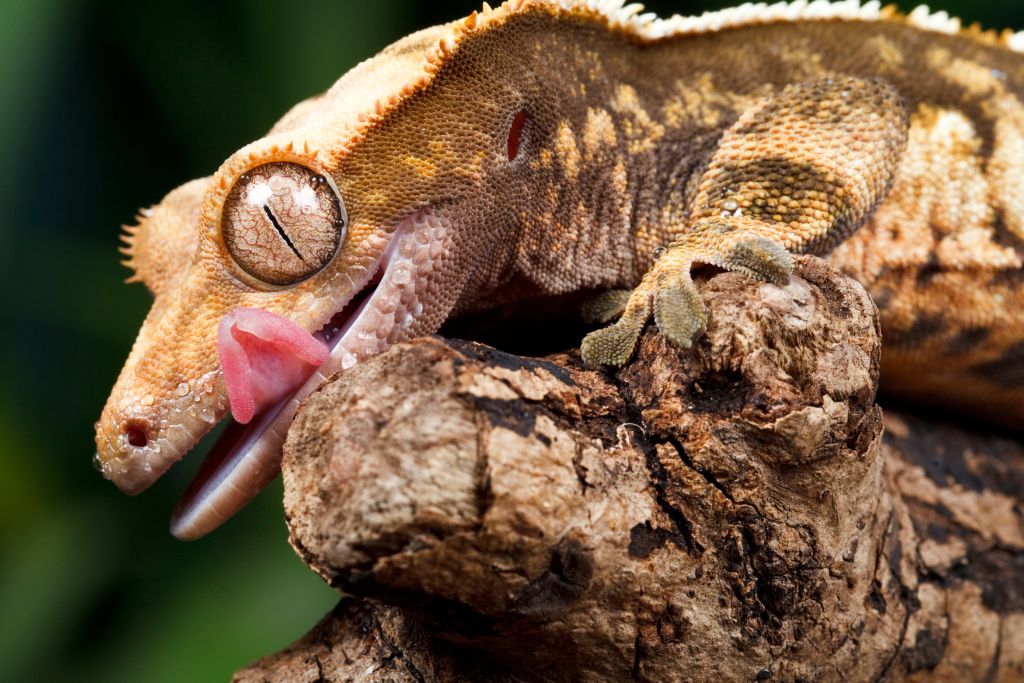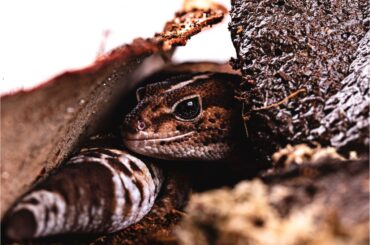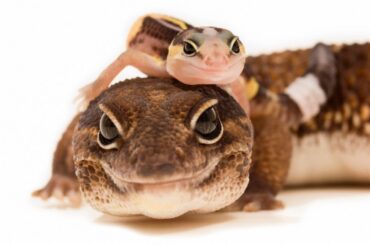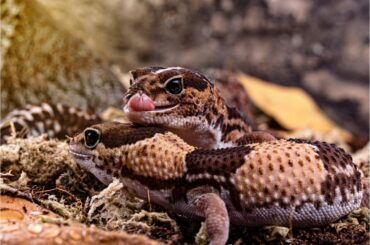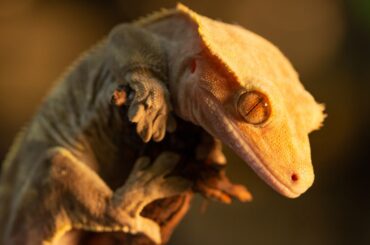Have you ever wondered what makes a crested gecko so unique and fascinating? It turns out that their health and well-being are closely tied to a vital ingredient in their diet – calcium.
Why is calcium for geckos essential, and how does it affect their daily lives? What happens if they don’t get enough of this crucial nutrient? This article will discuss how crested geckos’ calcium intake affects their growth, bone strength, and health.
Prepare to discover the importance of calcium for these fascinating reptiles and how to keep them happy and healthy in your care.
Why Calcium is Vital for Crested Geckos
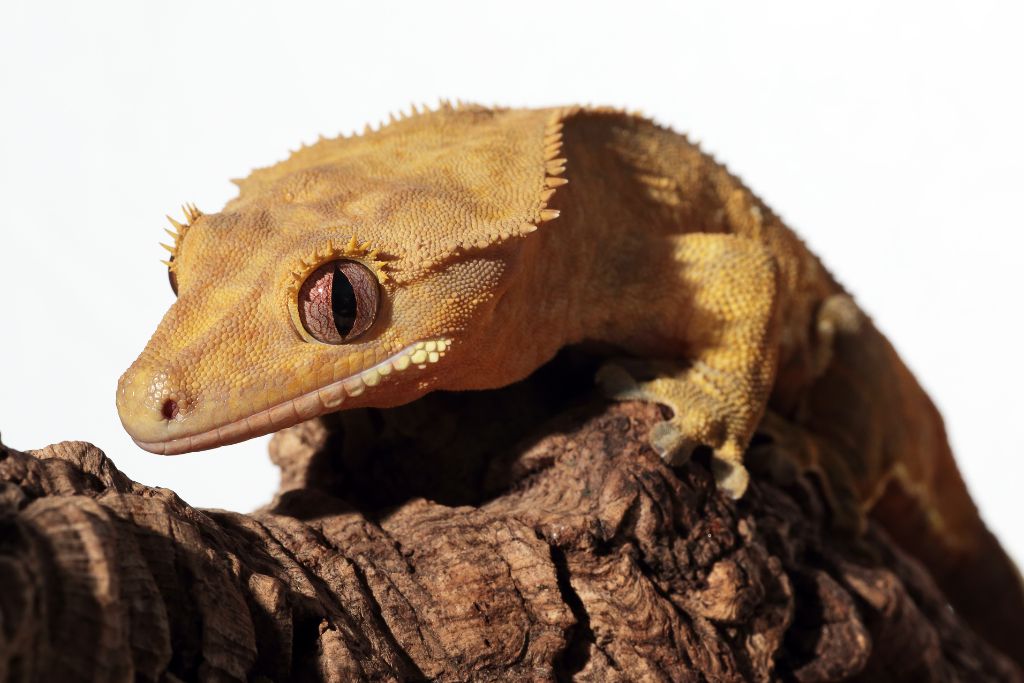
Crested geckos rely heavily on calcium to maintain a robust and healthy body. Like we need our veggies for growth, these geckos need calcium to keep their bodies working properly.
One big job calcium has is ensuring their bones stay tough and sturdy. Calcium enables crested geckos to climb and jump without bone issues, making tree-dwelling easy.
But that’s not all – calcium is also the secret ingredient for their muscles. Without enough calcium, their muscles might feel like they just ran a marathon without training! These geckos need enough calcium to keep their bones and muscles healthy.
Sources of Calcium for Crested Geckos
Explore these diverse sources of natural and supplementary calcium that can enhance your gecko’s well-being.
1. Bugs and Insects
In the wild, crested geckos munch on various bugs and insects that provide them with the calcium boost they need. Crickets, mealworms, and even roaches are like tasty treasures filled with the essential mineral. To strengthen their bones, your gecko could feast on these creatures.
2. Leafy Greens
Just like humans, crested geckos benefit from leafy greens rich in calcium. Spinach, kale, and collard greens become a colorful and nutritious part of their diet. Your gecko might eat a little meal of these colorful greens to receive natural calcium.
3. Calcium Powder
Sometimes, gecko meals need a little extra magic, and that’s where calcium powder steps in. This powdered marvel, sprinkled on their food, ensures that your gecko gets an added dose of calcium. It’s like a sprinkle of fairy dust, making their meals delicious and super healthy.
Calcium Deficiency in Crested Geckos
Here are signs that tell us when our gecko might be running low on this essential nutrient:
- Crunchy Cravings: When crested geckos start licking or even eating things like rocks, soil, or their shed skin, it’s not a gourmet preference. It might indicate they’re searching for more calcium because their little bodies feel starved.
- Soft Bones: Soft bones mean they’re not getting enough calcium, making them more prone to fractures.
- Squishy Tail: A gecko’s tail is like their mood ring. When it starts to feel squishy or loses its plumpness, it’s a red flag. It’s a sign that they might face a calcium crisis, affecting their health.
- Teeth Trouble: If you notice their teeth getting wonky or even falling out, it could be a calcium deficiency. They might lead to trouble munching on their favorite gecko snacks.
- Lethargy: It may not be a leisurely day if your gecko pal becomes the “sleep champion” or stops climbing and exploring. Lethargy can indicate low calcium levels, affecting their energy levels and zest for gecko life.
- Tremor: If you see them shaking or twitching, it might result from insufficient calcium, affecting their muscle function.
Balancing Calcium with Other Nutrients
Maintaining a balanced diet is crucial for the well-being of crested geckos. Achieving the proper calcium-to-phosphorus ratio plays a key role in their health. Think of calcium and phosphorus as the dynamic duo in your gecko’s diet, working together to keep its bones strong and its body functioning smoothly.
If these two nutrients are balanced, your gecko’s bones will grow strong and avoid abnormalities. Crafting a well-rounded diet for your crested gecko involves more than just offering a variety of foods. Consider offering a mix of insects, fruits, and a specially formulated crested gecko diet.
Calcium-rich foods like insects or powdered supplements can balance out phosphorus, which can disrupt the symphony. Incorporate fruits for a healthy dose of sweetness and nutrients. Maintaining a varied menu will provide your gecko with healthy, balanced nutrition!
Supplements and Calcium Administration
Just like humans take vitamins to stay healthy, these fascinating creatures also benefit from a little boost in their diet. Here is an array of calcium supplements available for crested geckos:
Calcium Powder
It comes in a fine, powdery form, making it easy to sprinkle on their food. It’s like adding a secret ingredient to boost their strength and keep those bones sturdy.
Calcium with Vitamin D3
Imagine if your gecko could soak up the sun even on a rainy day. Calcium with Vitamin D3 makes that happen. It’s a supplement that helps your gecko absorb calcium better.
Calcium Gel
Calcium gel is the way to go if your gecko prefers its calcium with a bit of gooey goodness. It’s a tasty treat for them, and you get the satisfaction of knowing they’re getting their calcium fix.
Liquid Calcium Drops
Liquid calcium drops are another fantastic option. They’ll absorb the goodness with a couple of drops on their food.
Frequency and Dosage
Geckos, like humans, need their fair share of calcium to stay healthy and strong. It’s crucial to sprinkle a pinch of calcium powder on their food about two to three times a week. This routine helps them get the right amount of calcium without overdoing it.
A tiny pinch is all they need when it comes to the amount. You want to stay moderate and avoid flooding their plates with calcium, as too much of a good thing can be harmful. If geckos consume an excessive amount of calcium, they may have health issues. Keep it moderate, and your gecko will be a happy, healthy little adventurer.
Best Practices for Ensuring Optimal Calcium Intake
Make sure your crested geckos get enough calcium to stay healthy and happy. Here are some simple and practical tips to make sure your little buddies are getting the calcium they need to thrive:
Bright and Breezy Enclosures
Make sure your gecko’s home is like a sunny paradise. Crested geckos love a well-lit environment, so place their enclosure where they can soak up some natural light. If that’s impossible, give them a UVB light to mimic the sun’s goodness.
Calcium-Rich Diet
Ensure your geckos munch on a variety of calcium-rich treats. Dust their live insects with a calcium supplement before serving them up. This way, every bite gives them a boost of the good stuff for their bones.
Proper Enclosure Setup
Use a substrate, like coconut coir, which keeps things cozy and holds onto the proper humidity levels. Add some branches or hides for climbing and hiding. This keeps them active and stress-free.
Reptile Supplements
Sometimes, your gecko needs a little extra help. Introduce a calcium supplement in their routine, but only give them what is necessary. Too much of a good thing can be harmful.
Lighting Setup
Invest in a good quality LED or fluorescent light for their enclosure. It improves their worldview and boosts vitamin D synthesis, which is necessary for calcium absorption.
Hydration
Keep their enclosure humid by misting it regularly. This helps in shedding and, you guessed it, keeps their skin and bones in top-notch condition.
Monitoring
Keep an eye on your pet’s behavior. If they seem sluggish or show signs of calcium deficiency, adjust their diet or consult with a reptile-savvy vet. Each gecko is unique, so some detective work can go a long way.
Conclusion
Responsible pet care requires understanding how calcium affects crested geckos. Calcium affects these unique creatures’ bone strength, muscular function, and overall health, not just as a supplement. Recognizing calcium insufficiency and feeding crested geckos a balanced diet with supplements helps them survive captivity.
Reptile enthusiasts can help their geckos live longer by supplying calcium, lighting, water, and regular monitoring. With these observations and proactive actions, we may create environments that showcase crested geckos’ beauty and perseverance.
FAQs
Do Crested Geckos Need Calcium Every Day?
Crested geckos do not need calcium every day. Dusting their food with a calcium supplement two to three times a week is recommended to ensure proper bone health.
How Do Crested Geckos Get Calcium in the Wild?
In the wild, crested geckos obtain calcium through their diet, which includes insects, fruits, and nectar. They may also absorb calcium from their environment, such as from mineral deposits on rocks or soil.

